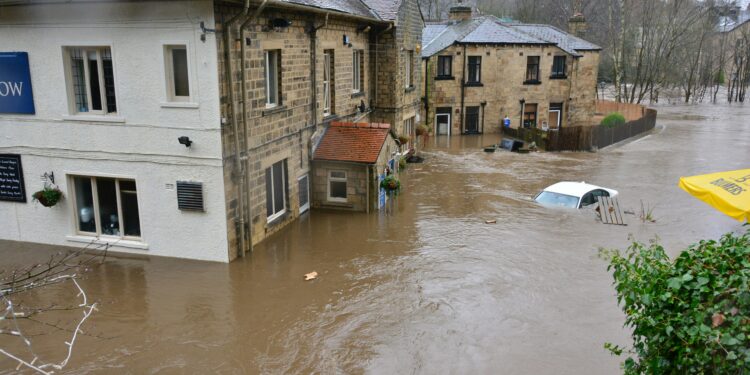Floods have become more common in the US than ever, with the 2020s emerging as a record-breaking decade for flooding. According to Statista, floods claimed 80 lives in the country in 2023. The economic damage was equally massive, valued at 2 billion dollars in losses to crops and properties.
As a homeowner, sometimes selling a home damaged due to a flood makes more sense than renovating it. You may not have enough money to refurbish your place, or you may just want to forget about the devastation and move on. Either way, selling a property ruined by waterlogging is easier said than done.
You can expect a unique set of challenges when it comes to finding buyers or getting offers. However, with the right strategy, transparency, and support, you can maximize your property’s value and achieve a successful sale. In this article, we will share a few tips for sellers looking to navigate this process effectively.
Begin with a Thorough Cleanup
According to Iowa Public Radio, the Northwest rivers in Iowa flooded homes and farms in the surrounding areas in 2024. Nearly 500 homes in the Sioux County community were damaged due to flooding. Many parts of the country witnessed a similar situation in 2024, and 2025 is no different.
If your property has borne the wrath of water, you need to get it cleaned up before listing it. The best way to do it is by seeking professional disaster restoration & cleaning services. Flood damage can compromise structural integrity, electrical systems, and foster mold growth. Letting experts handle the cleanup job is a wise move.
Disaster Masterz notes that certified contractors or restoration specialists can assess and repair the damage. Since they have the right equipment and expertise, the process is done with speed, safety, and efficiency.
As a seller, you may consider replacing materials like drywall, insulation, and flooring as necessary. Also, remove all signs of mold and dampness, as these are major red flags for buyers. Keep all documentation, receipts, and reports from cleanup and repairs at hand. Buyers and their lenders will want proof that the home is safe and habitable.
Have Realistic Pricing Expectations
Redfin states that home prices in the US in July 2025 were up 1.2% compared to the previous year. The median selling price was $443,471, and 473,987 homes were sold in the same month. While the numbers look great, don’t expect them to apply to a property damaged due to flooding.
Flood-damaged homes often sell for less than comparable non-affected properties. This happens due to concerns about recurring floods, expensive insurance, the stigma of water damage, and difficulty obtaining a mortgage. When settling on a price, you should have realistic expectations.
Getting a professional appraisal that considers the repair work already done and market conditions is a good idea. Consult a local real estate agent experienced in disaster sales to set a competitive price. These experts have a good understanding of local buyer psychology and risk tolerance. The price reduction relative to similar unaffected properties is around 5-15%.
Invest in Essential Repairs
You may have the most beautiful house in the neighborhood, but no one wants to touch a water-damaged property. However, buyers are more likely to consider a flooded home if proven steps have been taken to address problems. You may not want to spend a fortune when you plan to sell, but essential repairs should be done.
For example, start by replacing damaged drywall, insulation, and flooring. Consider upgrading to water-resistant materials in flood-prone areas, such as tile over carpet, closed-cell insulation, etc. These features will make the home more attractive to buyers. Ensure all electrical and HVAC systems are fully restored and safe.
Curb appeal is crucial when it comes to selling a home. Imagine a buyer walking into a home to see a damaged driveway. Surely, this will ruin your chances of getting a deal. A concrete and asphalt contractor can help you restore the beauty and functionality of your outdoor space and make your home sales-ready.
Milliken Corporation recommends essential repairs for the foundation, patios, driveways, and other exterior areas. You can choose the right materials that are affordable yet add appeal to your home. Remember to secure up-to-date building regulation certificates and permits to prove all repairs were to code.
Do Not Skimp on Disclosure
Honesty is non-negotiable when it comes to real estate deals. Full disclosure isn’t just ethical; rather, it is legally required in many locations. Investopedia notes that the seller can get in trouble if they knowingly conceal facts or lie about something.
Disclose all past flood events, insurance claims, financial assistance received, and remediation steps. Many states require sellers to explicitly state these facts upfront, often as part of the official disclosure statement.
Not sharing this information can void contracts, result in lawsuits, and even harm your agent’s license. If your state doesn’t require disclosure, being forthcoming still builds buyer trust and can reduce negotiations or cancellations later.
FAQs
Is it harder to sell a house in a flood zone?
Yes, a house in a flood zone is harder to sell. Such properties are less attractive to typical buyers due to elevated risk, repair costs, and insurance premiums. In some cases, buyers struggle to find financing, as many lenders refuse mortgages on recently flooded homes. Sales can take longer, and price reductions are common.
What devalues a house the most?
Several factors can reduce the value of a home. Major structural damage, such as that of the foundation, walls, and roof, can affect the deal. Mold and water damage that isn’t properly remediated is another problem point. You may also miss out on value if the property is located in a high-risk flood zone or has a recurring flooding history.
How expensive is flood insurance?
Flood insurance for properties with a history of flooding can be expensive or even impossible to obtain. Premiums vary by risk, claim history, and whether federal or state-sponsored relief programs apply. In high-risk zones, annual premiums can range from a few hundred to several thousand dollars.
Selling a home damaged by a flood can be a challenge for obvious reasons. Buyers may be adamant about picking such properties and reduce the offer since repairs may be required. However, you can speed up the selling process and sweeten the deal by following these tips. Don’t give up hope and work with a local real estate specialist to get the best price for your property.












